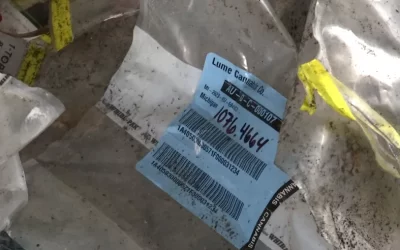Oregon governor signs a bill recriminalizing drug possession into law
On April 1, 2024, Oregon Governor Tina Kotek signed House Bill 4002 into law, effectively recriminalizing the possession of small amounts of certain controlled substances. This legislation marks a significant shift in Oregon’s drug policy, reversing a key provision of Ballot Measure 110 passed by voters in 2020. Measure 110 decriminalized possession of illicit drugs like heroin, cocaine, and methamphetamine, making them civil violations punishable by a fine only.
In a signing letter, Kotek said the law’s success will depend on “deep coordination” between courts, police, prosecutors, defense attorneys and local mental health providers, describing them as “necessary partners to achieve the vision for this legislation.”
House Bill 4002: Key Provisions
- Recriminalization: Possession of controlled substances in usable quantities for personal consumption becomes a Class A misdemeanor, punishable by up to six months in jail, a fine of up to $3,600, or both.
- Treatment Emphasis: The bill allocates new funding for substance abuse treatment programs. Law enforcement agencies are encouraged to create deflection programs that divert individuals caught with drugs towards treatment options instead of prosecution.
- Implementation Timeline: The recriminalization provisions take effect on September 1, 2024.
Background: The Decriminalization Experiment
Measure 110, approved with over 58% of the vote, aimed to address the state’s addiction crisis by shifting focus from punishment to treatment. However, implementation issues arose. Limited treatment resources hampered the program’s effectiveness, and concerns emerged regarding increased public drug use and public safety.
Arguments for Recriminalization
Proponents of House Bill 4002 argue that decriminalization failed to deliver on its promises. They cite:
- Inadequate Treatment Infrastructure: The lack of readily available treatment options rendered the decriminalization policy ineffective in addressing addiction.
- Public Safety Concerns: Increased reports of public drug use and associated criminal activity fueled arguments for stricter enforcement.
- Unintended Consequences: Critics argued decriminalization normalized drug use and discouraged individuals from seeking help.
Arguments Against Recriminalization
Opponents of the bill express concerns that it represents a step backward in drug policy reform. They argue:
- The Criminal Justice System is Ineffective: They believe criminalization disproportionately impacts low-income communities and people of color, hindering access to treatment.
- Focus on Treatment, Not Incarceration: Opponents advocate for increased investment in treatment programs over incarceration, which they view as counterproductive.
- Limited Bill Impact: Critics argue the bill’s treatment funding is insufficient and may not effectively address the root causes of addiction.
The Road Ahead
House Bill 4002 represents a compromise approach, attempting to balance public safety concerns with treatment availability. The success of this legislation hinges on several factors, including:
- Effective Implementation: Establishing accessible, well-funded treatment programs is crucial to diverting individuals from the criminal justice system.
- Police Discretion: Law enforcement agencies will need clear guidelines on implementing the deflection programs and how to interact with individuals struggling with addiction.
- Data Collection and Analysis: Monitoring the program’s impact on public safety, treatment utilization, and recidivism rates will be essential for evaluating its effectiveness.
Oregon’s policy shift reflects the ongoing national debate on drug policy reform. The coming months will be crucial in determining whether House Bill 4002 offers a viable solution to the state’s addiction crisis.
Real Questions from Real Calls
Question: I think I found a bag with some Fentynal in my yard??
Answer: Get far away and call the police. Even though we battle the police in a court of law there is still a need for them. Unless you want to pick it up and find out.
In 2023 the overdose death rate topped 112,000 in a 12 month period for the first time, according to the Centers for Disease Control and Prevention. Dec 28, 2023 (Still left out 3 days)
Related Articles
No Results Found
The page you requested could not be found. Try refining your search, or use the navigation above to locate the post.
More Posts
CRA Executive Director Hanna Applauds Whitmer’s FY25 Budget
No Evidence of Widespread Discriminatory Policing PracticesNever Ending Quest February 15, 2024 LANSING, MI – Today, Cannabis Regulatory Agency (CRA) Executive Director...
Your Tax Dollars at Work: State pays $13M settlement for active shooter drill
Your Tax Dollars at WorkState pays $13M settlement for unannounced active shooter drill at Northville Township psychiatric children’s hospitalSomeone Missed the Memo...
Laws passed by Michigan lawmakers in 2023 will take effect
Several new laws passed by Michigan lawmakers in 2023 will take effect on Tuesday, Feb 13, 2023Making use of the first combined Democratic majority in the state House,...
Understanding Michigan’s Cyberbullying Law (MCL 750.411x)
Understanding Michigan's Cyberbullying Law With the ever-expanding digital landscape, cyberbullying has become a harsh reality for many. Michigan, recognizing its...
FAQs About Restoring Your Drivers License in Michigan
Frequently Asked Questions about Restoring Your Driver's License in MichiganHere's what you need to knowWhat are the steps to restore my driver's license in Michigan?...
Involuntary Manslaughter Charges and Penalties in Michigan
Involuntary Manslaughter Charges and Penalties in MichiganHere's things you should to knowWhat is Involuntary Manslaughter in Michigan? Involuntary manslaughter differs...
Cannabis Tax Payments Being Distributed in Michigan
Adult-Use Marijuana Tax Payments Being Distributed In MichiganHere's what they say...Treasury: Adult-Use Marijuana Payments Being Distributed to Michigan Municipalities...
The Expanding List of Crimes that Restrict Gun Ownership
The Expanding List of Crimes that Restrict Gun Ownership in MichiganHere are the LawsDomestic Violence The legislature passed a package of bills that add subsets to...
Forensic Science Division – DNA Profiling System
The Michigan State Police Forensic Science Division (FSD) DNA Profiling System is a comprehensive program that uses DNA analysis to support criminal investigations...
Apparent cannabis testing bags in trash pile in Lansing
Michigan's marijuana laws mandate that both retail recreational and medical marijuana undergo comprehensive testing conducted by independent laboratories. The purpose...















